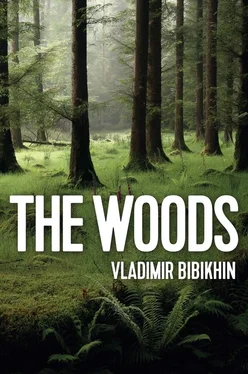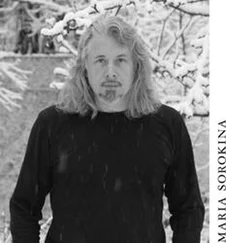Immediately, as if for our boldness, we are rewarded, although matter is one of the most difficult topics in Aristotle. The difficulties are of two kinds. Aristotle does not tie himself down: having propounded one thesis, he does not consider himself disqualified from later putting forward a different one. His truth is on the move. The second difficulty, which is a difficulty for Aristotle himself, is that primal matter must not be ‘like this here’, because then it would be possible to imagine a different kind of matter, meaning there were two or maybe more. There needs to be just one kind of primal matter, but if that is so, where does the difference between substances come from? From different structures of the primal matter? But if we are saying that there are within it proto-structures with the potential for further formation, we are back to dealing with structures, and we wanted to be dealing with pure matter. Certainly, we find different kinds of matter in Aristotle, but the difference comes about from the depth of our scrutiny of it: the immediate matter for illness, for example, is humankind, but humankind itself is eidos, and matter is placed at one remove.
One thing Aristotle is predictably definite about is his refusal to accept that matter can be located anywhere beyond the boundaries of things and separate from them. Just as there is only imaginary donkeyness separate from this particular donkey in front of us, so matter, too, will either be here in front of us or it will be a mental construct. We can understand from this why Aristotle should emphatically object, as he does at the beginning of Book 2 of On Generation and Corruption, that ‘those thinkers are in error who postulate, beside the bodies [four elements, Bibikhin ] we have mentioned, a single matter – and that a corporeal and separable matter’. 6Aristotle’s immediate objection is that this matter would duplicate the already known elements: it would either be light like air and fire, or heavy like earth, and so on. It might perhaps be even more basic than the elements, but certainly not of a different kind from them.
Why? Was Aristotle really incapable of imagining imperceptible matter? We are only too good at that, in the case of radiation, say. Ultraviolet and infrared rays are imperceptible. Quantum leaps are imperceptible. Why is it that for Aristotle a body, and any primary matter will be a body, ‘cannot possibly exist without a “perceptible contrariety”’? (329a). Because his perception was more refined. Radiation, owing to its effects on the body, would definitely be considered perceptible: the boundary of perception extended to include that. The same would be true of ultraviolet light: that ‘different’ light, or ‘different’, ‘higher’, ethereal fire was perceived, so to speak, as a change of mood before it was noticed that it caused a suntan. We are mistaken also in thinking that quantum mechanics as an intellectual (which is not the same as a mathematical) system was not elaborated by classical thinking in the topic of the automaton and spontaneity: there was an intellectual system of analogous complexity in the teaching about the soul.
When Aristotle talks of ‘perception by the senses’, he includes intuition and mood; at all events, he includes more than just direct impingement on the sensory organs. If the soul is in some way everything, then everything in a specific way will affect it. Today we have a foreboding that somewhere, in some dark, still place, someone – aliens, the government, the mafia, an international conspiracy – is up to something we cannot detect, do not know about, cannot perceive, cannot influence; or that in the bowels of substance, processes beyond our ken are brewing. Aristotle would have called that induced, superstitious. Everything affects me in one way or another; I react effectively to it in my own individual way, and can influence it just as long as I do not close my eyes or numb myself with noise.
Aristotle’s objection to Plato’s geometrical matter is precisely that such matter would be separate from what affects me personally, just as abstract values do not affect me. But we have already said that identity and unity affect all of me more than some random passing donkey. Again we are back with the problem of so-called substantial numbers. So that is the root of the difficulty! For Aristotle, numbers are apart, like geometric shapes. That is why, without explanation, he rails against Plato’s tetrahedrons again and again. It is impossible for abstract planes to be the wet-nurse (i.e. primary matter) (329a). Being is complete being, the being of things, which means that ‘things’ must be understood differently. And that is how Aristotle does understand them; they are not peeled away from eidos. And that is where we need to look for what we are surmising in Aristotle: ontological numbers, number as being? Almost certainly.
For the present, if Aristotle says something ‘exists’, he is automatically conferring fullness of being on it. He does not look for ‘existence’ among intellectual abstractions. ‘Our own doctrine is that although there is a matter of the perceptible bodies (a matter out of which the so-called “elements” come-to-be), it has no separate existence, but is always bound up with a contrariety’ (329a).
With great aplomb, taking a good swing, Aristotle approaches the topic of matter at the beginning of his Physics, and the examples he gives there for matter, or the substratum, the underlying hypokeimenon, speak volumes. 7The examples are of education and formation: first the becoming of a musical man from a not-musical man; and then the forming of an image, a statue from bronze. We can say, from being not-musical, the man becomes musical. Was being not-musical the substratum underlying the musical man? No, because the condition of being not-musical ceased to be, and the substratum is so called because it continues to lie beneath. On the other hand, we do not say from being a man he came to be musical. That would imply that we had in mind that a man is always unmusical. That is something we do not know. He may be as yet not-musical, but it is not necessarily the nature of man to be unmusical. Another example: we speak of ‘a statue coming to be out of bronze’. A form out of something formless? Here we need to differentiate. Just as it is not necessarily the case that before becoming musical a man was unmusical, so bronze before a sculptor gives it form is not necessarily formless. It is only carelessness that makes it seem so to us. Formlessness is no more the natural state of bronze than being a sculpture is, and in just the same way it is not necessarily formless. Formlessness is not the substratum of the statue: bronze is.
Note that a person is not entirely neutral, not wholly indifferent to becoming musical; it is not meaningless to say that people want to be, are attracted to being, musical. Matter is not chaos. It is not meaningless for a sculptor to say that the bronze wants to be a statue. Aristotle’s third example of a substratum clarifies this situation (190b). There is always something that underlies, from which that which comes to be proceeds: for instance, animals and plants from seed. In this third example, it is quite clear that the substratum has a reserve of movement in it. A person reaches out for the art of music the way a seed reaches out to develop into a living being. In order to understand how bronze reaches out to be a sculpture, we must remember that the Greeks were not at all interested in the microscopic world: for them the world they knew was their microscope and telescope. The bronze reaches out to the sculpture … we need now to return to this idea of Aristotle’s, to seek to penetrate it with the aid of the theories of modern physics about self-organization. We shall ask, however, as physicists cannot: what do we mean by ‘self-’?
Читать дальше












